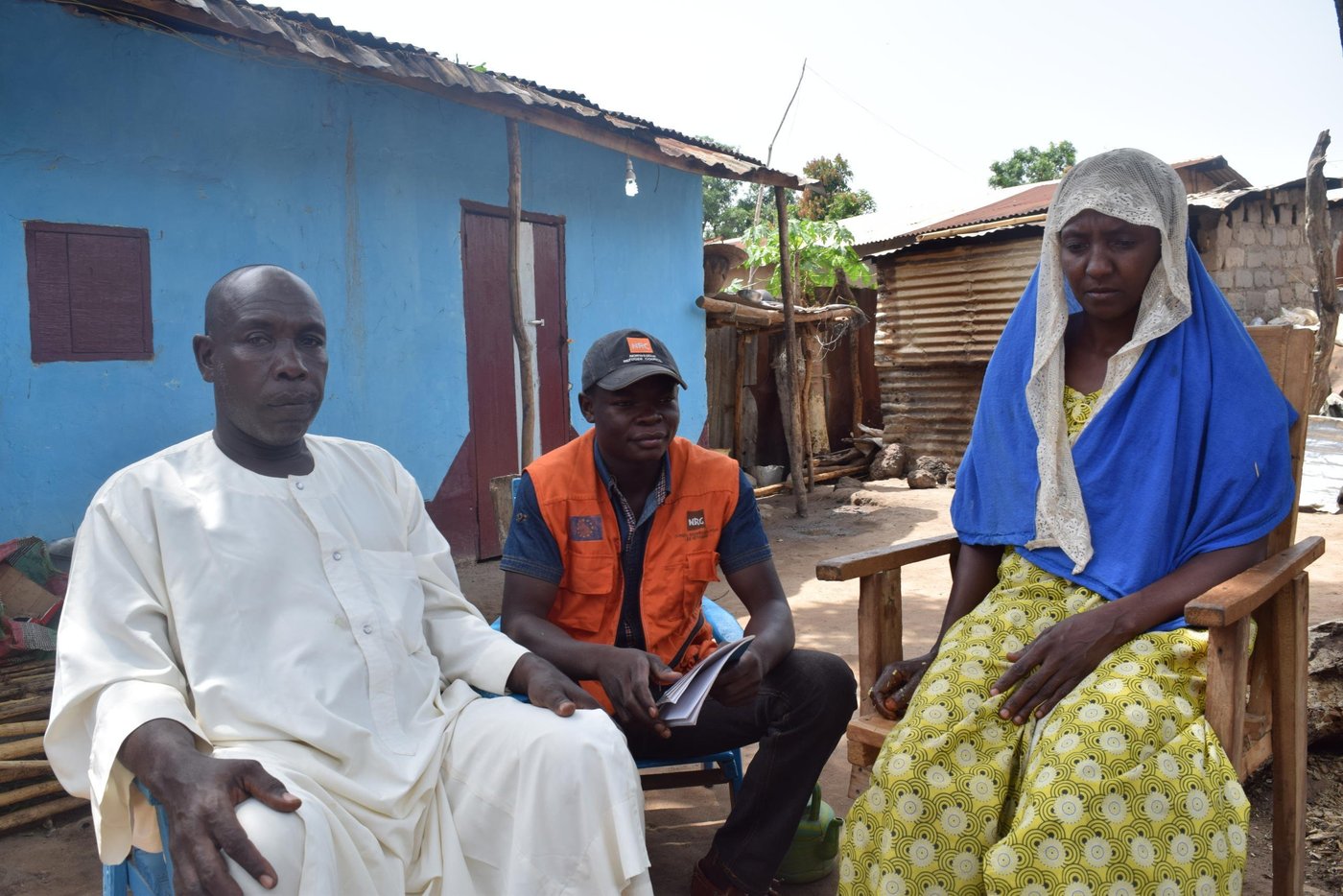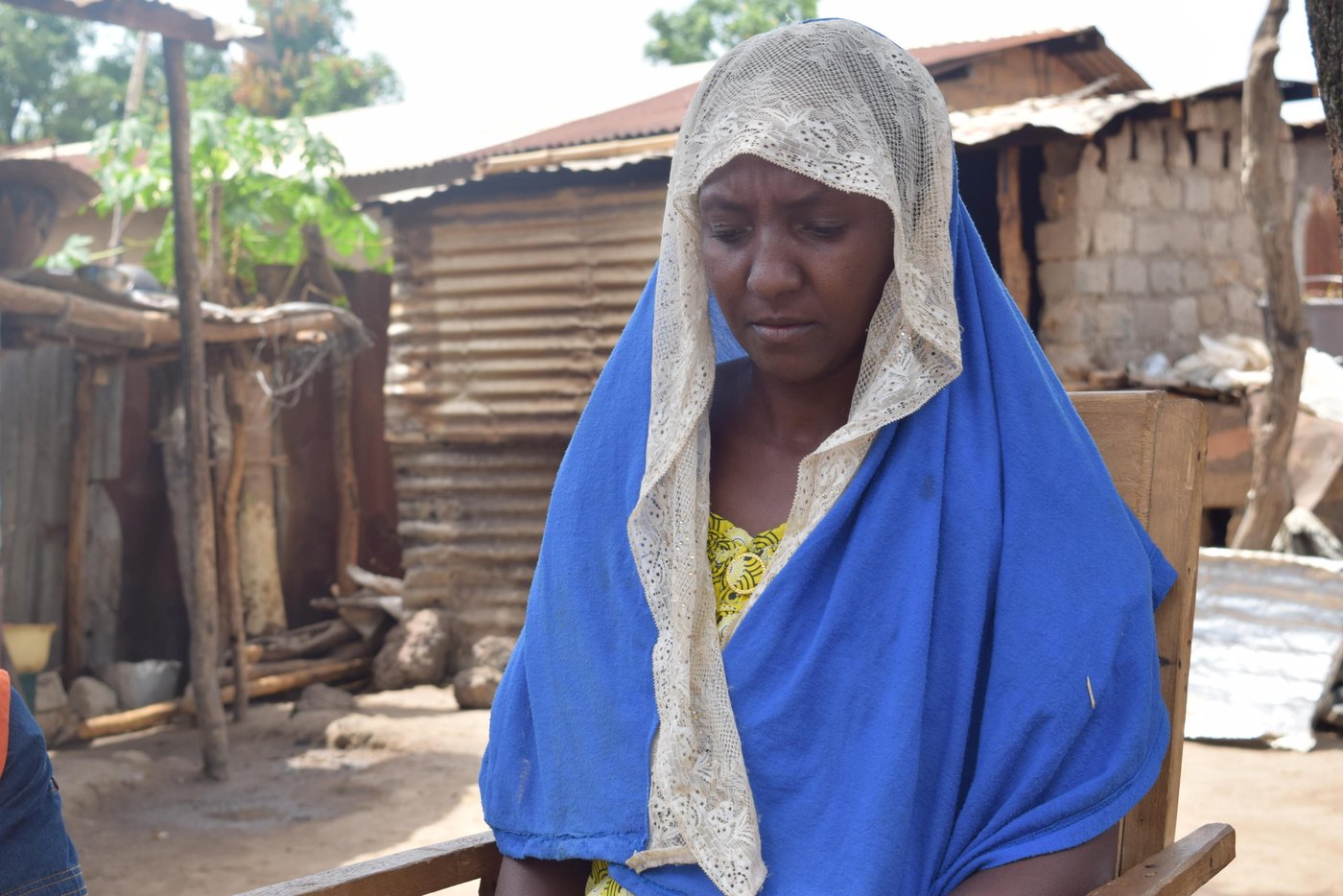A nation at war
The Central African Republic (CAR) is a resource-rich nation, located, as its name implies, squarely in the centre of the African continent. In 2013, a civil war broke out in the country causing hundreds of thousands to flee their homes to escape the violence.
Several peace agreements have since been reached, the latest in February 2019, but attacks have continued and the humanitarian situation to this day is alarming. It is estimated that about half of the country’s 4.6 million citizens is in need of humanitarian assistance.
The conflict involves armed actors divided along ethnic and religious lines, with both Muslim and Christian civilians being targeted by armed groups affiliated with the other side. This has been devastating for communities that had lived together in peace and stability prior to the conflict.

Fatima’s journey
Fatima is a 36-year-old mother of five from a town called Dekoa, about three hours’ drive from CAR’s capital city Bangui. Following violent altercations between warring factions, she and her family left everything behind and joined the many people fleeing to Sido, a village close to the border between CAR and Chad.
Fatima spent four years living on a site for displaced people in Sido. She lived in a tent with her children and conditions were very difficult. After four years of enduring this situation, she and her family decided it was time to return home.
“My children were just so tired of living in Sido, so we decided to try to move back to Dekoa, where we had lived before all the violence and killing,” Fatima explains.
An uneasy welcome home
Returning home, however, was not what she expected. Fatima is of the Muslim faith and she returned to find that other city-dwellers discriminated against her because of her religion. She did not feel safe going to the market or the hospital because of how people would treat her. Even her neighbours were unpleasant.
“When I came back to Dekoa, everything was much more difficult than I thought. People would make fun of me or insult me. It was a really scary situation and I did not see a way out of it for me or my family.”
Fatima’s experience is far from unique. One of the consequences of years of fighting is that it had sowed a level of mistrust in communities that were once united. Citizens distanced themselves from their neighbours if they were members of another faith.

Rebuilding bridges
To combat this, the Norwegian Refugee Council (NRC) began to organise community dialogue sessions to improve social cohesion. With financing from the European Civil Protection and Humanitarian Aid Operations (ECHO), we established protection committees to help different communities understand the importance of social cohesion and provide them with tools to rebuild broken bridges of communication, establishing a newfound trust.
These exercises enabled communities to live together more harmoniously and understand each other’s rights. This was a turning point in Fatima’s life.
“After the sessions we participated in, we feel much more secure. My family is not so scared anymore, because we are able to cohabit in a much more peaceful way. Even our neighbours are nicer to us,” Fatima declares.
“We’re really proud of everything we have achieved so far,” explains Bienvenu Pasagere, one of NRC’s protection officers living and working in Dekoa. “If you see better cohabitation in this town today, it is thanks to the hard work of all the communities involved.”
These efforts are bringing Fatima, and the other returnees to Dekoa, one step closer to finally putting the nightmare of the past few years behind them.
Read more about NRC's work in the Central African Republic (CAR)


